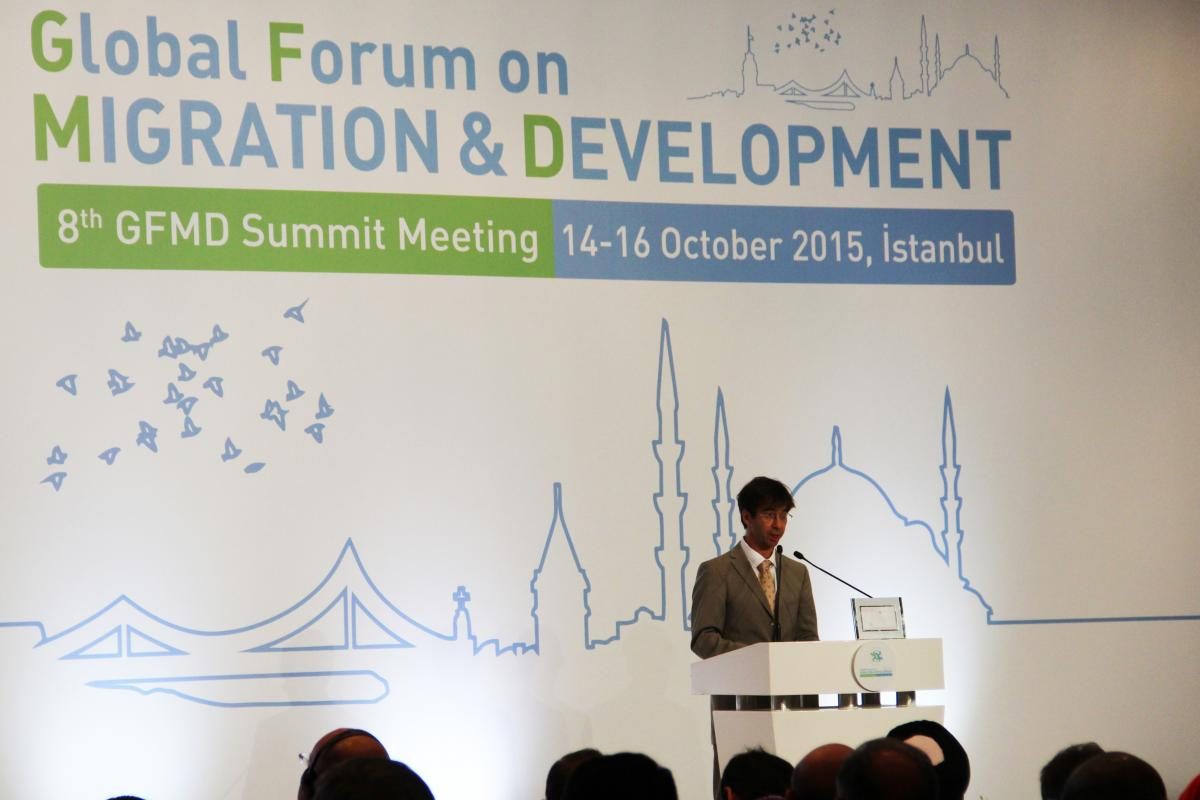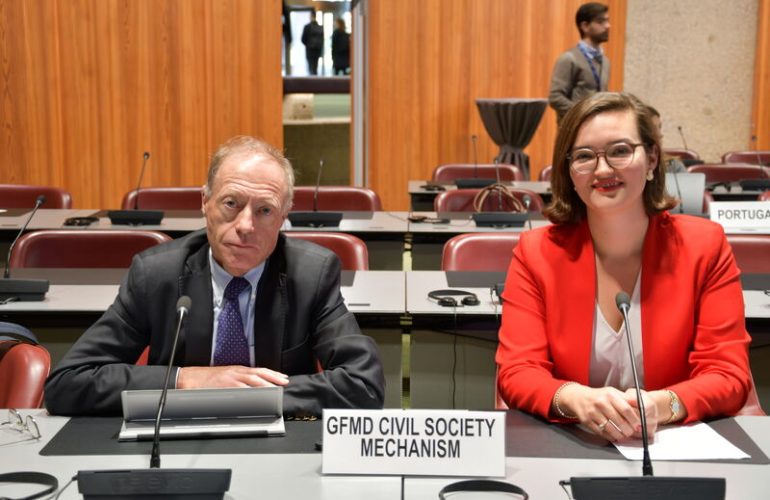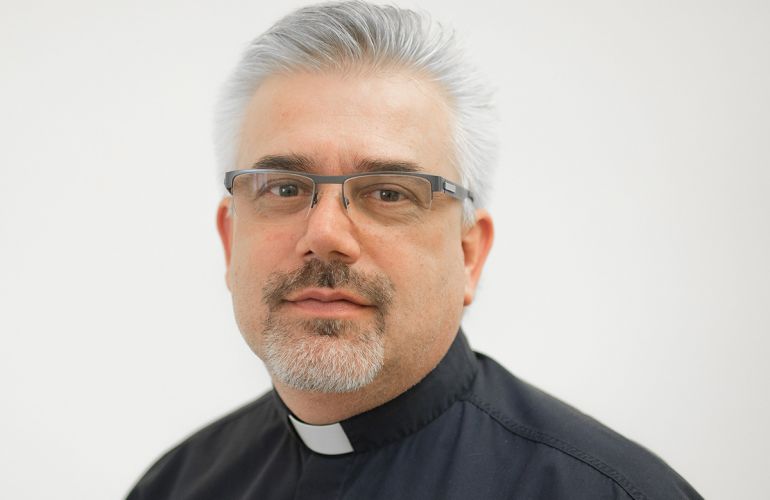Global Forum on Migration and Development: Civil Society Calls on Governments to Make Better Choices

The Global Forum on Migration and Development (GFMD), held this week in Istanbul, brought together over 500 government delegates from more than 140 countries, some 300 leaders of civil society worldwide and high-level delegates from UN and international agencies to discuss the relation between migration and development, share experiences and forge practical cooperation.
During the Opening Ceremony of the 2015 GFMD government summit Ignacio Packer, Secretary General of Terre des Hommes and Chair of the 2015 GFMD Civil Society Days, spoke of choices that need to be made in policies and practices on migration and development.
“We are at the tipping point… are we choosing and tipping in the right direction?” he asked the audience. Civil society “emphatically rejects building blocks of migration policy based on prejudice and fear, of walls, barbed wires and prisons, of stereotypes, of ‘us and them’. In fact, those are not the only choices possible!”. Choices need to build on evidence and values: on reality not assumptions, and values centered upon full respect for human rights of migrants. Choices need to “build a positive legacy for our planet for generations to come”.
Mr. Packer presented to the governments the key conclusions and recommendations of civil society from two days of intense debate on current events, reports from the field and action on the ground by and regarding migrants and migrant diaspora, including direct testimony from boat people, refugees and other migrants. Given the organizing of the GFMD in Turkey, particular attention was devoted to the current situation of Syrian refugees and other forced migrants both stuck and on the move in the Middle East, North Africa and Europe.
- In his statement, Mr. Packer emphasized central civil society recommendations:
- On protecting children in the context of migration, among other things urging the US, now the only UN Member State on the planet that has not ratified the Convention on the Rights of the Child, to do so.
- On responding to migrants in crisis, calling states to widen scope of effort beyond the current “countries” in crisis approach, to the “migrants” in crisis, improving – without delay – needs-first and rights-based responses to migrants in distress in transit, including opportunities for orderly, safe, regular and responsible migration.
- On implementing the newly adopted “2030 Sustainable Development Agenda”: welcoming the inclusion of explicit targets regarding migrants and migration in the new goals and noting the immediate task to take them forward into national policy, implementation and monitoring, with civil society directly involved.
- On respecting labor rights and conventions, including the 1990 UN Migrant Workers Convention: saying “Here is another good choice whose time has come: it’s high time for Europe to sign these conventions, together with other main countries of destination.”
- On reform of abusive migrant recruitment processes, commending concrete progress between international organizations and the private sector, among recruitment agencies themselves, particularly in Asia, and most recently ground-breaking legislation in the Gulf region; an issue on which “where governments and private businesses are increasingly recognizing the need to choose reforms and policy changes.”
- On fighting xenophobia: “The siege mentality fanned by an increasing number of populist leaders and by xenophobic media is disgraceful and dishonest. Society that is truly ‘civil’ demands a new choice: to no longer play with— or surrender to – such intolerance.”
- On joined governance: expressing concern for policies drafted or passed in more than 60 countries since 2013 that shrink the space for civil society to engage meaningfully with governments on better solutions for migrants and refugees. “We claim a rightful place by demanding genuine participation in governance at local, national, regional and global levels. A place at the decision-making table, and co-responsibility.
It is with “gentle optimism and fierce determination”, Packer noted, that civil society looks to the future. The new Sustainable Development Goals and their aim to “not leave anyone behind” – including migrants – give room for hope, a feeling which UN High Commissioner for Refugee Antonio Guterres shared in his own address to governments, citing migration as “part of the solution” to ongoing global challenges.
Related document
- Read the full Civil Society Chair’s Report 2015.
Videos
- Listen to the Civil Society Report of Ignacio Packer, Secretary General of Terre des Hommes and Chair of the 2015 Civil Society Days of the GFMD.
About the GFMD
The Global Forum on Migration and Development (GFMD) is the primary international process aimed at advancing cooperation and reinforcing partnerships on issues linked to migration and development. Arising out of the UN General Assembly High Level Dialogue on International Migration and Development of 2006, the Forum held its eighth meeting this year.
A voluntary, informal, non-binding and government-led platform, the Forum attracts active participation both from governments and from civil society worldwide. Two full “Civil Society Days” gather non-governmental organizations working on migration and development issues in all regions of the world, allowing them to bring forward civil society perspectives to governments that meet in a two–day Summit the same week.
Since 2011, the International Catholic Migration Commission (ICMC) has served as the Coordinating Office for civil society activities in consecutive GFMDs in Switzerland, Mauritius, Sweden and Turkey. Continuing in this capacity, ICMC will work with the government of Bangladesh, which takes over overall responsibility for the GFMD in 2016.


